Shropshire signpost washes up on beach in Somerset
- Published
- comments
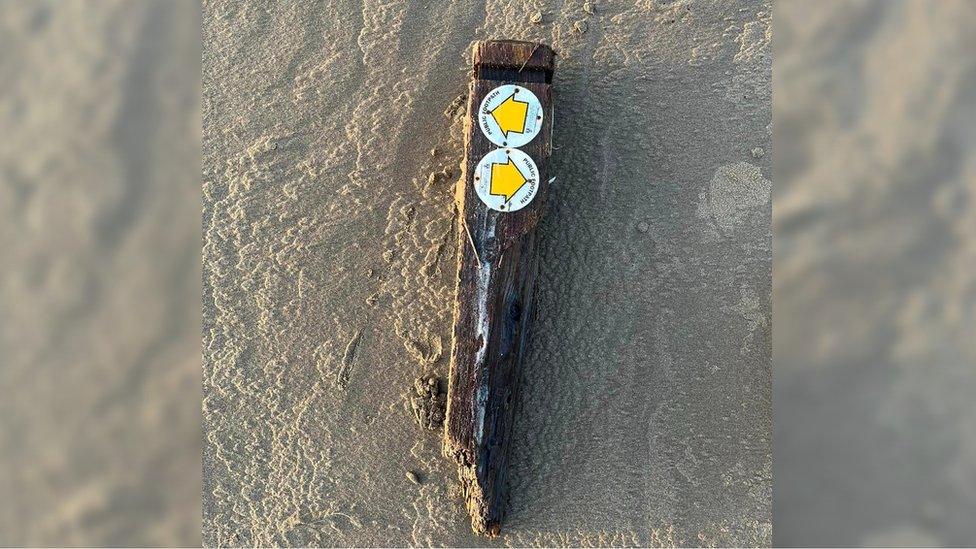
The signpost floated down the River Severn for more than a hundred miles
A footpath signpost that washed up on the shores of a beach has called into question the state of pollution in our waterways.
The post, belonging to Shropshire Council, was recovered by local resident Mark Bellew on Weston-super-Mare's main beach on 9 April.
As Shropshire is land-locked, it's presumed the post floated the 100 mile (160km) distance down the River Severn.
The traceable post is an indication of how far litter can travel to the sea.
Mr Bellew first spotted the signpost tossing around in the waves during Storm Pierrick, which pummelled the South West with torrential rain and winds reaching 65mph (104 km/h).
The Environmental Agency (EA) said the combination of spring tides and gale force winds caused "potentially record high tides across the south coast".
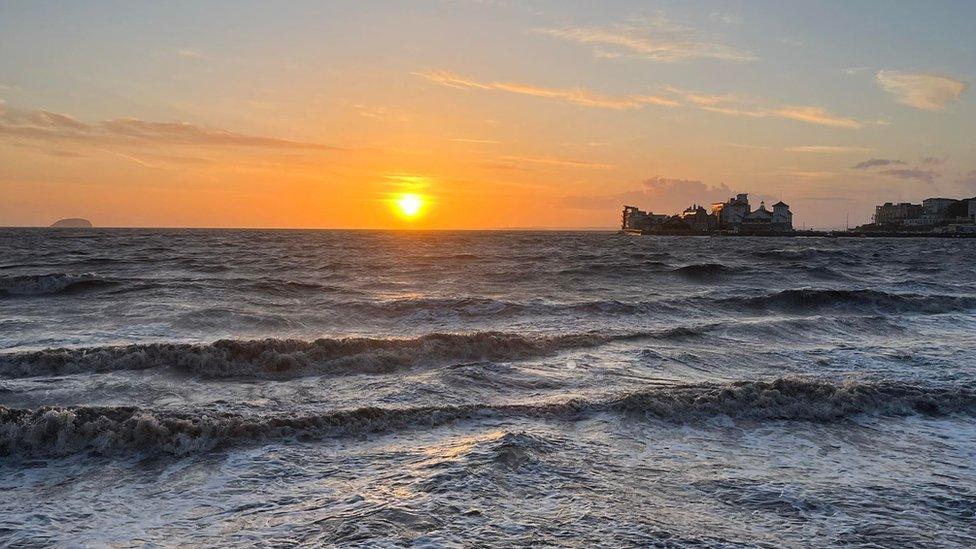
Mr Bellew was able to retrive the signpost after it washed up on the high tide
"I like to wander along the beach and look at what gets washed up by the tide," said Mr Bellew, who lives in Locking village.
"Normally there's nothing particularly interesting or recognisable - seaweed, plastic bottles, and small bits of driftwood - but on this occasion, and normally after a storm, is when the larger or more interesting items arrive."
Mr Bellew said along with the signpost, there was also a fully inflated tyre, a metal beer keg and other plastic debris churning around in the water.
Debbie Apted is a volunteer with Cleaner Coastlines, a litter-picking and anti-pollution campaign group in Weston-super-Mare.
"We can't usually establish a source for the litter and debris we find on the beach, but this one was rather obvious," she said.
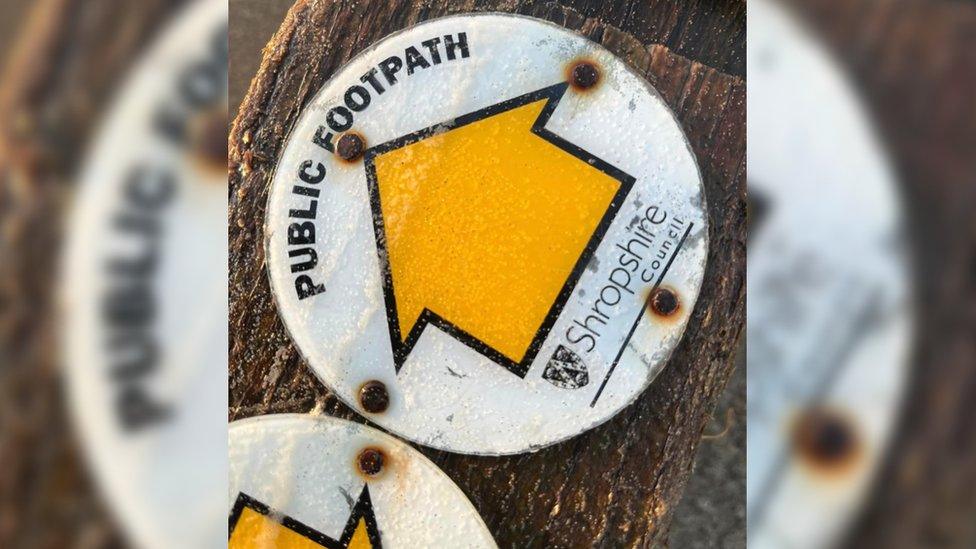
Mr Bellew said he believes the signpost was "on or near the riverbank" and had "given way and fallen into the water"
"We can do all the beach cleans we want, but it goes to show how important it is for people living inland to look after their communities and waterways too," Ms Apted continued.
"This is a prime example of where something has gone into the river in Shropshire and has ended up down on our beach, and so could a lot of plastic, or any other rubbish, as it floats its way down to the estuary and eventually into the Atlantic. That's where it will all end up."
Torrential rain and strong winds can carry macro plastics including plastic bags, bottles, food wrappers and other waste into drains and rivers which then act as conveyor belts, dumping between 1.15 and 2.27 million metric tons of plastic into the ocean each year, according to the EA.
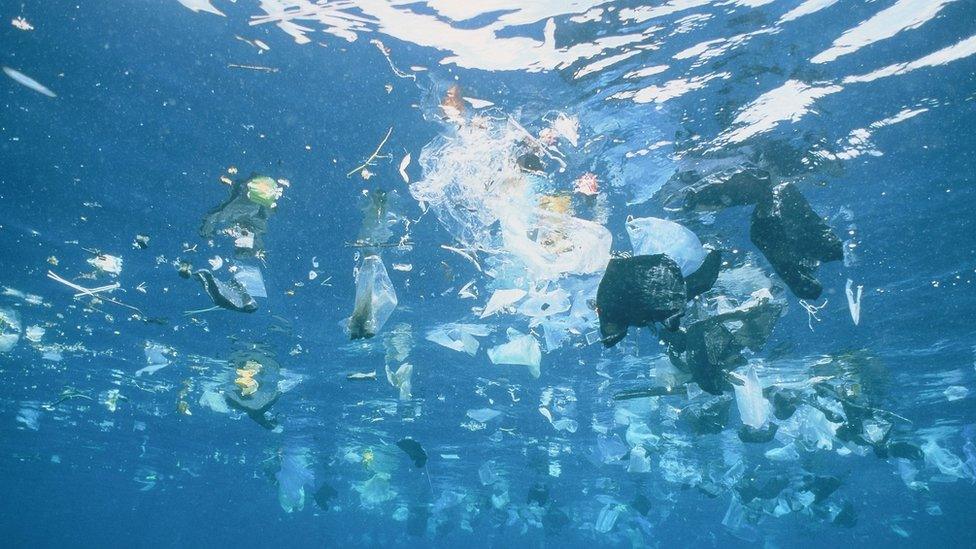
According to the Environment Agency, 80% of marine pollution is caused by poor waste management and littering on land
Plastic accumulation in the ocean is not only harmful to marine ecosystems but can also threaten human health, food safety and quality, coastal tourism, and contribute to climate change.
"Choking our rivers and seas, plastic leaches into every corner of the environment," said Josh Harris from Surfers Against Sewage, an organisation campaigning for a cleaner ocean.
"Our communities work tirelessly to eradicate single-use plastic from where they live, to clean up our blue and green spaces, and to educate the next generation of ocean activists.
"All of our waterways are linked, and that's why we take our campaigning inland, from mountain streams all the way out to the sea.
"Connected by our waterways, we're all in this together," he added.

Follow BBC Somerset on Facebook, external and, X, external. Send your story ideas to us on email, external or via WhatsApp on 0800 313 4630, external.
- Published19 February 2023
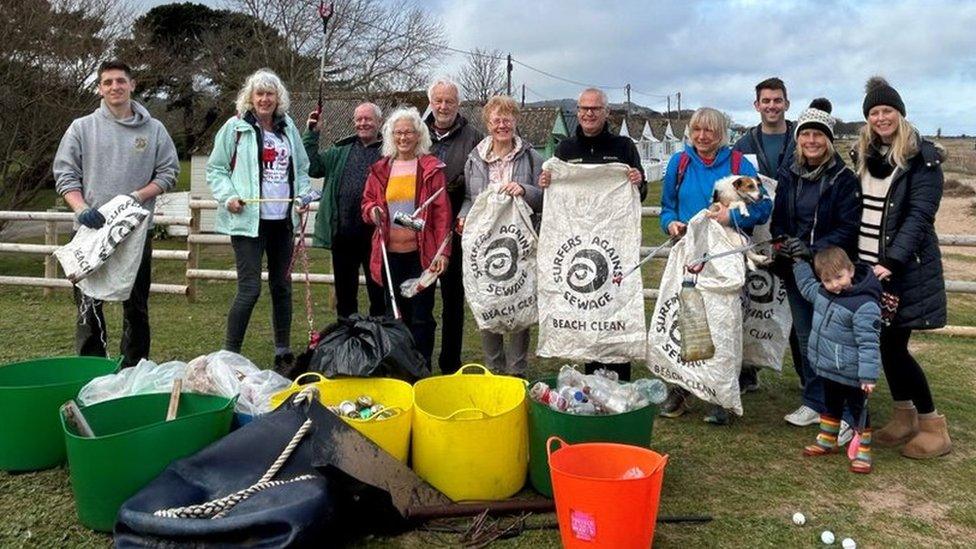
- Published30 September 2020

- Published21 July 2023

- Published8 March 2023
